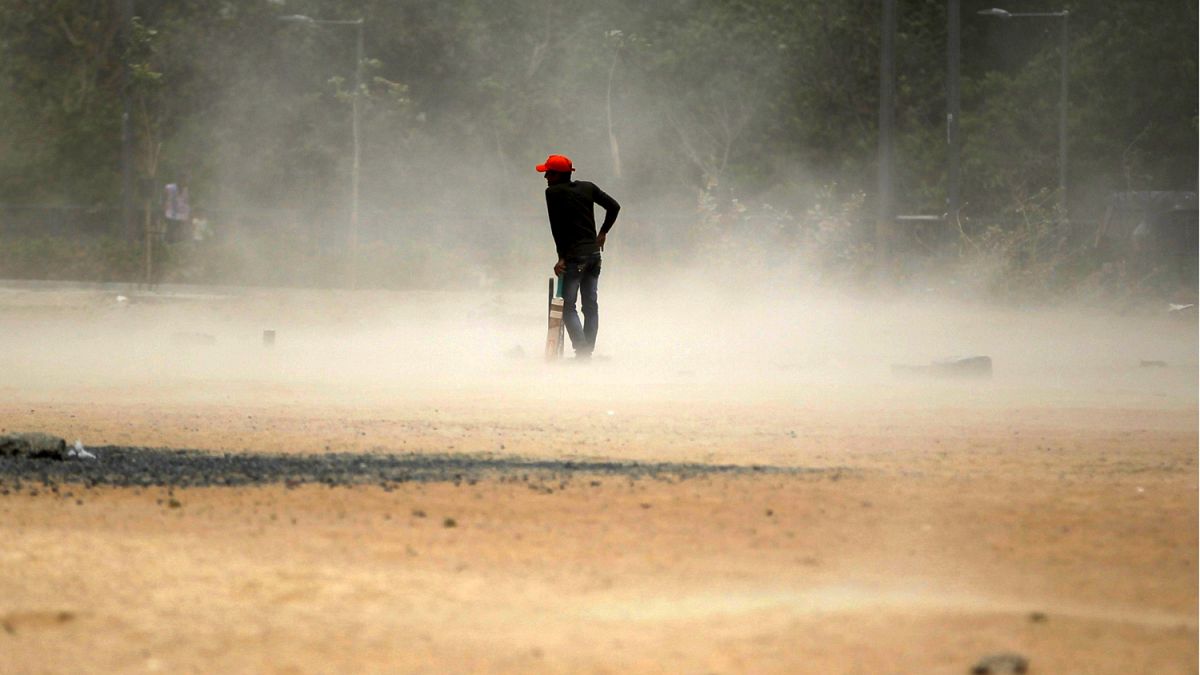“Why don’t you Germans like cricket?” The question has apparently been asked by many an incredulous refugee arriving in Germany, and formed the
“Why don’t you Germans like cricket?”
The question has apparently been asked by many an incredulous refugee arriving in Germany, and formed the headline in a recent article by Spiegel Online (in German).
Four-times world champions at football, some in Germany are now questioning the country’s potential at that most English of sports – cricket – thanks to its popularity among the ever-growing number of migrants from Afghanistan and Pakistan in particular.
Of nearly half a million people who claimed asylum in Germany last year, more than 40,000 came from these two countries – with many reportedly asking “where can I play?”
Of 18 players training at the THCC cricket club in Hamburg, 12 are Afghans. Wahed does not understand much German or English – but when in to bat, gets the message when his coach shouts “you’re out!”
The 23-year-old soldier tells Spiegel that he fled his native country over a year ago because of “difficulties with the Taliban”. In Afghanistan he used to play cricket every Friday, which he says “made me happy”, even though he did not completely understand the rules.
In Germany too, the game has provided a welcome diversion from the challenges of daily life as a refugee. News that a cricket academy existed – and was open to all – spread quickly among the Afghan community.
The German Cricket Federation (DCB) says it has been flooded with pleas for help with setting up clubs and providing equipment.
The DCB’s chief executive officer, Brian Mantle, says the federation – which he runs with one assistant from the western town of Essen – has been getting up to five enquiries a day.
“Often it’s from social workers, who had never even heard of cricket before groups of refugees from Afghanistan and Pakistan started asking where they could play it,” the Englishman told AFP.
The DCB has helped 400+ projects for refugees playing #cricket in Germany, Essen is one, see video
icc_europe</a> <a href="https://t.co/KKK2WF5g2v">https://t.co/KKK2WF5g2v</a></p>— Cricket Germany (Cricket_Germany) 2 May 2016
The federation has 4,000 registered players and recently welcomed its 100th new club, from Bautzen near the Czech border.
It has recently sent out hundreds of boxes of supplies – bats, balls and clothing – to new clubs. They include three dozen sent from the UK’s leading youth cricket charity, the Lord’s Taverners.
LordsTaverners</a> <a href="https://twitter.com/SkyCricket">SkyCricket Many thanks. Your kind donation has helped 400 projects. #cricketfamily— Cricket Germany (@Cricket_Germany) 5 May 2016
However the federation has said it now has nothing more to donate and is appealing for sponsorship or funding.
Such is the influence of immigrants on cricket in Germany, that half of the national under-19 team is made up of Afghans who have qualified through residency.
Mantle hopes that in years to come, German cricket might become as successful as it has in countries such as Ireland and Afghanistan, who are approaching the standards of Test-level cricket.
Cricket_Germany</a> are doing some amazing work giving refugees hope through cricket. Inspiring</p>— CricketAtlas (CricketAtlas) 2 May 2016
For now, cricket remains sufficiently rare in Germany that Spiegel felt it necessary to inform readers that it was a team sport “somewhat reminiscent of baseball” only with “rules that are much more complicated”.
The language barrier has been challenging enough from English into German when explaining the intricacies of who is in, who is out, what LBW means, and the respective roles of batsman, bowler and fielders. Now the Germans have to cope with trying to communicate with refugees, some of whom speak only Dari or Pashto.
In recent years German football has been getting used to the increasingly ‘multiculti’ nature of its football, reflecting the diversity of ethnic backgrounds among both players – from the national football team down – and fans.
German cricket may still be firmly stuck in the crease for now. But the positive influence of the influx of refugees on the game is at least allowing its supporters to dream.
If Leicester can win the Premier League then maybe we can win the Cricket World Cup one day #5000-1bet
— Cricket Germany (@Cricket_Germany) 2 May 2016


